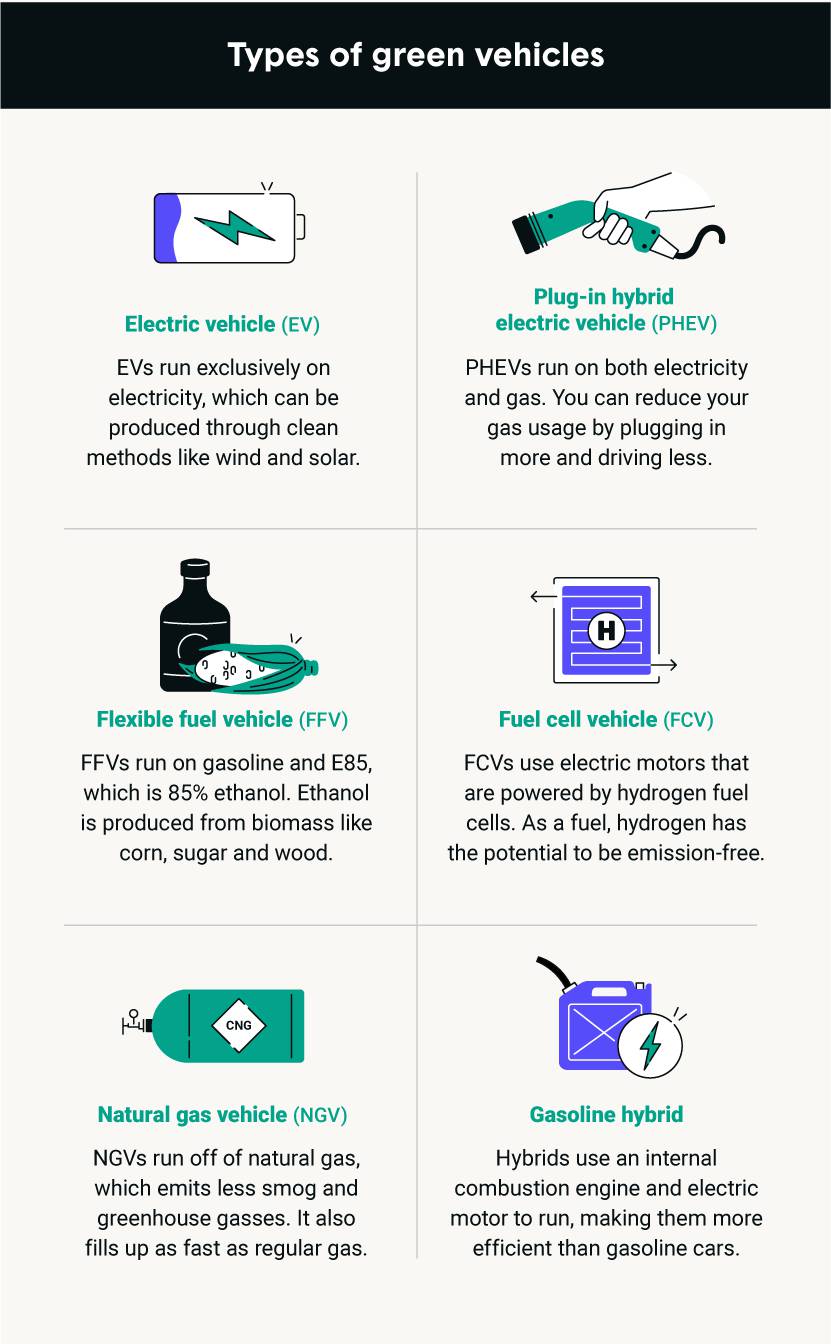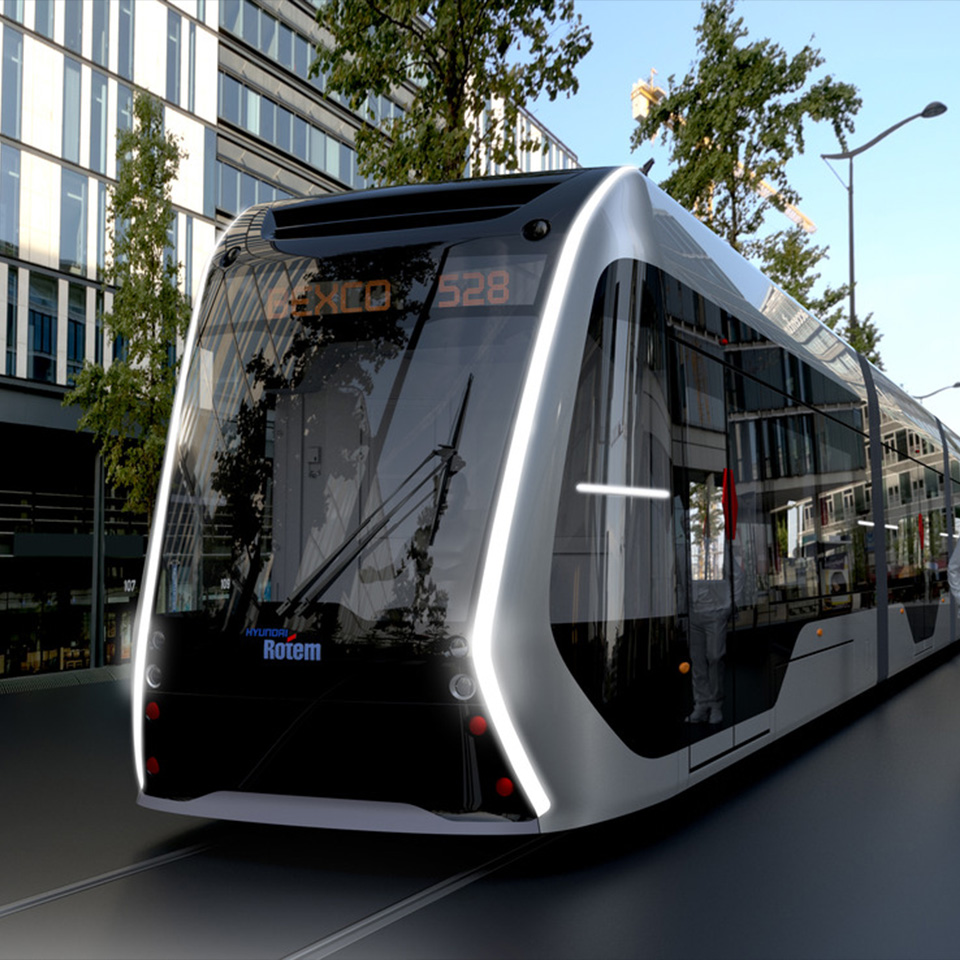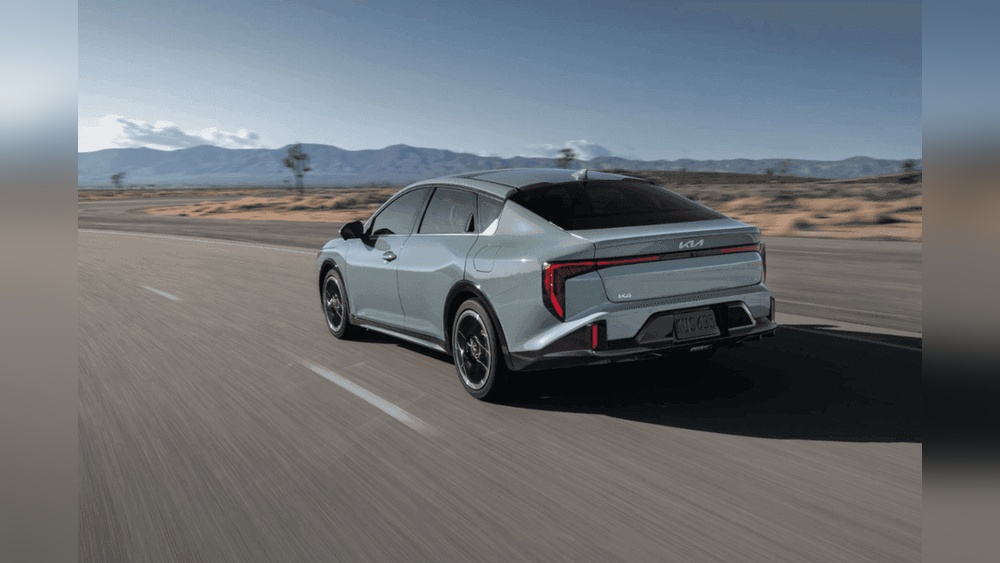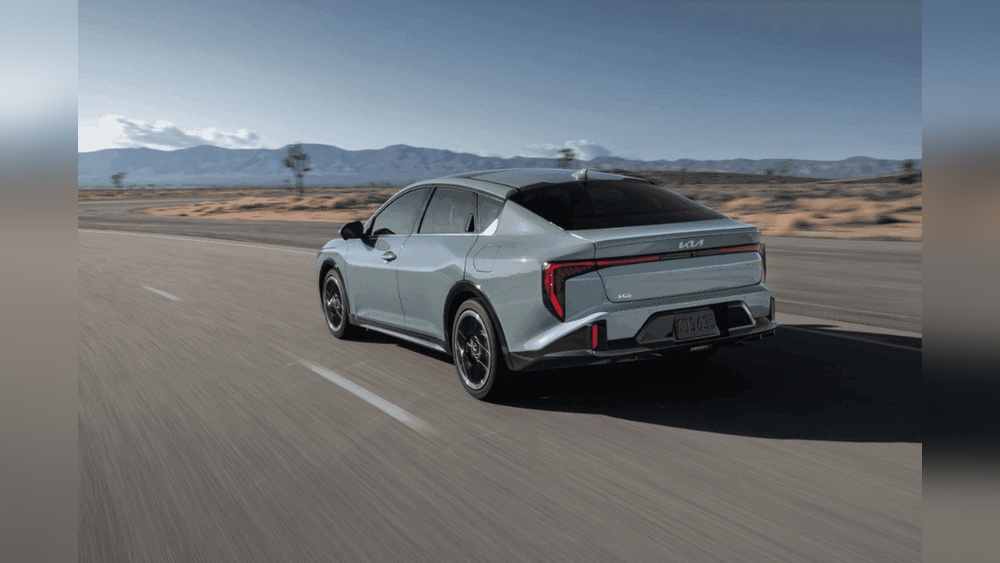Looking for the best hydrogen SUV that matches your eco-conscious lifestyle? You want a vehicle that not only drives smoothly but also leaves a minimal footprint on the planet.
Hydrogen SUVs offer a promising option—emitting only water vapor as they run, they could be the clean ride you’ve been waiting for. But not all hydrogen vehicles are created equal, and the real environmental impact depends on how the hydrogen fuel is made.
You’ll discover which hydrogen SUVs stand out for their green credentials, performance, and practicality. Get ready to find the perfect eco-friendly SUV that fits your values and your daily driving needs.

Credit: www.thezebra.com
Hydrogen Suvs In 2025
Hydrogen SUVs in 2025 are shaping the future of eco-friendly driving. These vehicles offer a promising alternative to traditional gas-powered SUVs. They run on hydrogen fuel cells, producing only water vapor as emissions. This technology supports cleaner air and less reliance on fossil fuels.
The market is expanding, with more models becoming available for eco-conscious drivers. Advances in technology improve range and refueling times. This makes hydrogen SUVs more practical for everyday use. Cities and countries are also investing in hydrogen refueling stations, increasing convenience.
Leading Models To Watch
Toyota continues to lead with its new hydrogen SUV model, combining reliability and efficiency. Hyundai’s upcoming hydrogen SUV promises longer range and faster refueling. Honda is also entering the market with a compact hydrogen SUV designed for urban use. These models focus on balancing performance with environmental benefits.
Each brand targets different needs, from family vehicles to city commuters. Watch for more announcements as companies expand their hydrogen vehicle lineups. The competition is driving better features and lower prices for consumers.
Key Features And Innovations
Hydrogen SUVs in 2025 come with advanced fuel cell systems that increase driving range. Many models now offer ranges comparable to gasoline SUVs, reducing range anxiety. Refueling times have dropped to under five minutes, similar to filling a gas tank.
Safety features include robust hydrogen storage tanks and leak detection systems. Automakers also focus on lightweight materials to improve efficiency. Infotainment and driver-assist technologies are integrated to enhance the driving experience.
These innovations make hydrogen SUVs a viable, eco-friendly choice. They combine clean energy with modern SUV versatility and comfort. Expect continued improvements as hydrogen technology evolves.
Environmental Impact
The environmental impact of hydrogen SUVs depends largely on how hydrogen fuel is made and used. These vehicles offer a clean alternative to gasoline cars. They produce almost no harmful emissions while driving. The real benefit lies in the source of hydrogen energy. This section breaks down the key factors influencing their eco-friendliness.
Zero Tailpipe Emissions
Hydrogen SUVs emit only water vapor from their tailpipe. This means no carbon dioxide, nitrogen oxides, or other pollutants. It helps improve air quality, especially in cities. The lack of harmful emissions reduces smog and health problems. This clean exhaust is a major reason for their appeal among eco-conscious drivers.
Green Hydrogen Production
Hydrogen fuel can be made using renewable energy sources like wind or solar power. This process is called electrolysis. It splits water into hydrogen and oxygen without creating carbon emissions. Green hydrogen offers a much cleaner fuel option. It lowers the overall carbon footprint of hydrogen SUVs. Using green hydrogen helps fight climate change and supports sustainable energy growth.
Challenges With Fossil Fuel Hydrogen
Most hydrogen today comes from natural gas or coal. This process produces significant carbon emissions. Using fossil fuel hydrogen reduces the environmental benefits of hydrogen SUVs. It can make their impact similar to or worse than gasoline cars. Another issue is hydrogen leaks, which can harm the atmosphere. These challenges show the need for cleaner hydrogen production methods.
Performance And Range
Performance and range are key factors for eco-conscious drivers choosing a hydrogen SUV. These vehicles blend clean energy with practical driving needs. Understanding how they drive, their fuel efficiency, and refueling time helps buyers make smart decisions.
Driving Experience
Hydrogen SUVs offer smooth and quiet rides. Their electric motors provide instant torque. This means quick acceleration without engine noise. Handling feels balanced, making city and highway driving enjoyable. The quiet cabin enhances comfort on long trips. These SUVs deliver a driving experience similar to electric vehicles but with longer range.
Fuel Efficiency
Hydrogen SUVs convert fuel into energy efficiently. They often exceed traditional gasoline SUVs in miles per gallon equivalent (MPGe). This efficiency reduces fuel consumption and lowers emissions. Drivers can expect consistent performance without frequent stops. The energy conversion process produces only water vapor. This makes hydrogen SUVs a clean choice for daily driving and long journeys.
Refueling Time
Refueling a hydrogen SUV is fast. It takes about 3 to 5 minutes to fill the tank. This is similar to refueling a gasoline vehicle. Quick refueling beats electric vehicles that need hours to recharge. Hydrogen stations are growing but still limited in some areas. Planning routes with available stations ensures smooth travel. Fast refueling supports long trips and busy schedules.

Credit: www.hyundaimotorgroup.com
Infrastructure And Availability
Understanding infrastructure and availability is key for choosing the best hydrogen SUV. Hydrogen vehicles need special fueling stations. Their reach affects where you can drive comfortably. Availability varies by region, influencing your ownership experience. The future of hydrogen SUVs depends on expanding this network. Here, we explore these factors to help eco-conscious drivers decide.
Hydrogen Fuel Stations
Hydrogen fuel stations are rare compared to gasoline pumps. These stations supply compressed hydrogen gas for quick refills. Most are located in big cities and select highways. Refueling takes about 3 to 5 minutes, similar to regular cars. The limited number of stations restricts long-distance travel. Station safety and maintenance are tightly controlled due to hydrogen’s properties.
Regional Access And Limitations
California leads in hydrogen station availability in the U.S. Europe and Japan also have growing networks. Many states and countries lack enough stations for daily use. Rural areas often have no access to hydrogen refueling. This limits hydrogen SUV ownership outside major urban centers. Drivers must plan trips carefully around station locations. Limited access affects the appeal for many eco-conscious buyers.
Future Expansion Plans
Governments and companies plan to increase hydrogen stations. Investments focus on urban hubs and key travel routes. Some projects aim to double or triple current station numbers soon. Automakers support infrastructure growth to boost hydrogen SUV sales. Advances in production and storage may lower station costs. Widening the network will make hydrogen SUVs practical for more drivers.
Cost And Incentives
Choosing the best hydrogen SUV involves understanding the costs and available incentives. This section breaks down key financial aspects. It helps eco-conscious drivers make informed decisions. Knowing the purchase price trends, government rebates, and maintenance expenses can save money and stress.
Purchase Price Trends
Hydrogen SUVs usually cost more than gasoline cars. Prices are slowly dropping as technology improves. New models often come with better features and efficiency. Early adopters pay a premium but help grow the market. Expect prices to become more affordable over time.
Government Rebates
Many governments offer rebates to encourage hydrogen vehicle use. These rebates reduce the initial purchase cost. Some states provide tax credits or cash incentives. Check local programs for eligibility and amounts. Rebates make hydrogen SUVs more accessible for many buyers.
Maintenance Expenses
Hydrogen SUVs have fewer moving parts than traditional cars. This usually means lower maintenance costs over time. Fuel cells require less frequent service than combustion engines. Parts and repairs may be costlier due to new technology. Regular checks ensure safety and efficiency without high expenses.

Credit: inhabitat.com
Common Issues And Reliability
Hydrogen SUVs offer a promising eco-friendly alternative to traditional vehicles. Understanding their common issues and reliability helps eco-conscious drivers make informed choices. These vehicles are still relatively new, so knowing potential technical problems is important. Reliability affects ownership costs and peace of mind.
Known Technical Problems
Hydrogen SUVs sometimes face fuel cell durability challenges. The fuel cell stack can degrade faster under extreme temperatures. Some models report issues with hydrogen storage tanks and sensors. Refueling infrastructure is limited, causing occasional delays. Software glitches in energy management systems also occur. Most problems are minor and improve with newer models.
Warranty And Support
Manufacturers often provide strong warranties for hydrogen SUVs. Typical coverage includes fuel cell components for up to 8 years or 100,000 miles. Many brands offer roadside assistance and free hydrogen refills for a limited time. Support networks are expanding as more dealers train on hydrogen technology. Extended warranties give buyers confidence in long-term reliability. Always check warranty details before purchasing.
User Reviews
Users appreciate the quiet and smooth ride of hydrogen SUVs. Many praise the eco-friendly benefits and quick refueling times. Some drivers report occasional maintenance visits but find service staff knowledgeable. Reliability ratings generally improve with newer model years. Overall, users feel positive about owning hydrogen SUVs despite minor issues. Real-world feedback helps set realistic expectations for new buyers.
Comparing Hydrogen To Electric Suvs
Choosing between hydrogen and electric SUVs can be tricky for eco-conscious drivers. Both options offer cleaner alternatives to gasoline vehicles. Each technology has its strengths and challenges. Understanding their differences helps in making an informed choice.
Environmental Benefits
Hydrogen SUVs emit only water vapor while driving. Electric SUVs produce zero tailpipe emissions as well. The source of energy affects their true environmental impact. Hydrogen made from renewable energy is very clean. Electric SUVs charged with green electricity also reduce pollution. Both reduce harmful gases compared to gasoline cars.
Performance Differences
Hydrogen SUVs refuel in about five minutes. Electric SUVs take longer to recharge, often hours. Hydrogen vehicles tend to have longer driving ranges. Electric SUVs usually offer quick acceleration. Both provide a quiet and smooth ride. The choice depends on driving habits and needs.
Infrastructure Comparison
Hydrogen fueling stations are rare and mostly in certain areas. Electric charging stations are growing rapidly worldwide. Home charging is easy for electric SUVs but impossible for hydrogen. Hydrogen stations require complex and costly setups. Electric vehicle infrastructure is more accessible for most drivers. Availability plays a big role in vehicle convenience.
Future Outlook
The future of hydrogen SUVs looks promising for drivers who care about the planet. Advances in technology and growing market interest point to more options and better performance soon. These changes will make hydrogen vehicles more accessible and practical.
Hydrogen SUVs could become a top choice for eco-conscious drivers in the years ahead. Their zero-emission nature aligns well with the goal to reduce pollution and fight climate change. The coming developments will shape how we drive and care for the environment.
Advancements In Hydrogen Tech
Hydrogen fuel cells are becoming more efficient and durable. New materials help reduce costs and improve power output. Refueling times are shrinking, matching the convenience of gasoline cars. Storage technologies are evolving, allowing longer driving ranges. These improvements will make hydrogen SUVs easier to own and operate.
Market Growth Predictions
The hydrogen SUV market is expected to grow steadily. Governments support clean energy with incentives and infrastructure investments. More manufacturers plan to release hydrogen models soon. Fuel station networks will expand, easing range anxiety. Growth in this market means more choices and competitive prices for buyers.
Impact On Eco-conscious Driving
Hydrogen SUVs produce only water vapor, cutting harmful emissions completely. Using renewable energy for hydrogen production will lower carbon footprints greatly. Drivers can reduce their environmental impact without sacrificing performance. These vehicles will help cities improve air quality. Choosing hydrogen SUVs supports a cleaner, greener future for all.
Frequently Asked Questions
Are Hydrogen-powered Cars Eco-friendly?
Hydrogen-powered cars emit only water vapor, making them eco-friendly if fueled by renewable hydrogen. Fossil fuel-based hydrogen reduces their benefits.
What Are The Common Problems With Mirai?
Common problems with Mirai include limited refueling stations, high hydrogen production costs, potential hydrogen leaks, and dependency on fossil fuel-based hydrogen.
Who Makes The Best Hydrogen Car?
Toyota makes the best hydrogen car, with the Mirai offering reliable performance and zero emissions. Hyundai’s Nexo is also a top choice. Both lead in fuel cell technology and eco-friendly driving.
What Is A Downside Of Using Hydrogen Fuel For Driving?
A downside of using hydrogen fuel for driving is the limited refueling infrastructure. Producing hydrogen often relies on fossil fuels, reducing its environmental benefits. Hydrogen storage and transport also pose safety and cost challenges.
Conclusion
Choosing the best hydrogen SUV helps reduce pollution and protect nature. These vehicles run on clean energy and emit only water vapor. Driving one supports a healthier planet and lowers carbon footprints. As technology improves, hydrogen cars will become more common and affordable.
Eco-conscious drivers can enjoy powerful, quiet rides without harming the environment. Keep an eye on advances in hydrogen fuel and infrastructure. The future of green driving looks bright with hydrogen SUVs.

